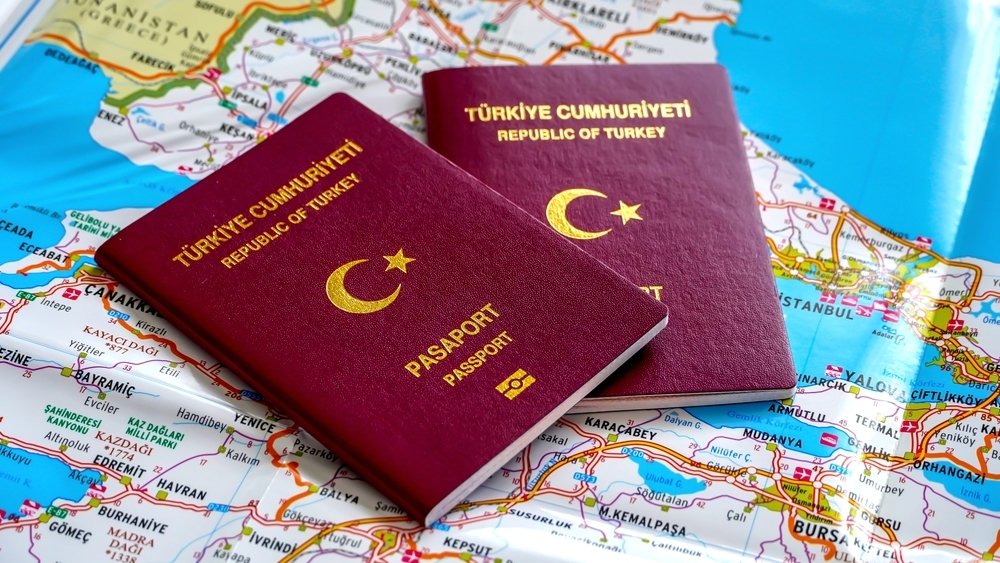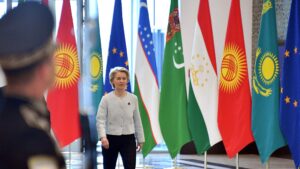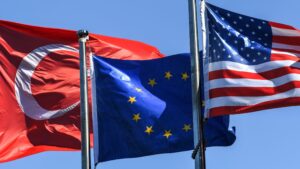Türkiye-EU relations have always been sui generis, a relationship like no other, defined by long-standing imbalances. Every pillar of this partnership, from trade to diplomacy, has been shaped by these disparities. The most recent challenge is that goods crossed borders with ease, while people were left waiting. A truck loaded with auto parts from Türkiye could reach Germany in a matter of days, yet the exporter behind it might spend weeks securing a visa appointment.
The imbalance wasn’t confined to mobility; it also applied in negotiations, with decisions frequently leaning against Türkiye. The European Commission’s July 15 decision, however, may be the first real indication that this pattern is starting to shift. Under the new scheme, eligible Turkish travelers can obtain multi-entry Schengen visas valid for up to five years, thereby eliminating the constant uncertainty over whether their passports will be returned on time.
Short-term impact: Easing burdens
Europe remains a center of attraction, owing to its technological edge and high-quality education. Yet the financial burden on Turkish citizens has been staggering. In 2024 alone, Turkish citizens paid 93.9 million euros ($109.40 million) in Schengen visa fees, with 13.6 million euros of that amount wasted on rejected applications. Stretch that over the last 15 years and you’re looking at more than 775 million euros from households and businesses.
Undoubtedly, longer visa validity won’t make the costs disappear, but it will serve the national interest by sparing people from the exhausting cycle of reapplying every few months for the Schengen visas.
Trade tells an equally powerful story. Trade between Türkiye and the EU reached 210.7 billion euros last year, with exports of 98.4 billion euros, mainly comprising automotive parts, machinery, electronics and textiles, and imports of 112.3 billion euros in European industrial goods and chemicals.
With visa facilitation in place, Türkiye’s trade volume isn’t only set to grow, but it is also likely to reach new heights, providing our exporters with the speed and access they need to stay ahead of foreign rivals, such as China.
This is not only about trade; education and tourism face similar barriers.
One-way partnership: human cost
According to the European Commission’s official Schengen visa statistics, Turkish citizens submitted 1,173,917 applications in 2024, placing Türkiye second globally after China. Despite strong demand, the rejection rate remained at 14.5%, resulting in more than 170,000 applications being refused, which cost over 13.6 million euros in non-refundable fees, in addition to the extra expenses. Within that number were thousands of Turkish students accepted into European universities and Erasmus exchanges. Many waited months for an appointment, only to miss classes, programs or scholarship deadlines.
These delays had been discussed in numerous meetings and negotiations, as they had become a symbol of how much the system needed to change, and it did.
Tourism makes the imbalance crystal clear. EU citizens enjoy Türkiye without a visa, and they do so in record numbers. According to figures shared by the Turkish Statistical Institute (TurkStat), Türkiye welcomed 62.6 million foreign visitors worldwide, including 9.5 million Turkish citizens living abroad, in 2024, generating $61.1 billion in revenue, with Germany alone sending over 6.6 million tourists. It is safe to say that European countries make up a significant share of this total.
On the other hand, during the same period, approximately 11.4 million Turkish citizens traveled abroad, spending nearly $7.7 billion on their trips. Only an estimated 1.1 to 1.2 million of these journeys were to EU countries, based on Schengen visa data, despite Türkiye’s deep economic and social ties with Europe.
While it may look good for Türkiye’s economy, a genuine partnership is built on reciprocity, not one-way traffic. The new measures are expected to make it easier for Turkish passport holders to travel freely across Europe.
Long-term impact: Full integration
Let’s be clear, this is just a starting point, not the final destination. If anything, it should set the stage for two goals that have gathered the dust far too long: visa-free travel and a modernized customs union.
As President Recep Tayyip Erdoğan set the tone during a joint press conference with the EU Commission President Ursula Von Der Leyen, “The customs union should be updated again and visa liberalization negotiations should be resumed.”
The reality is that the current customs union belongs to another era. It was designed in 1996, long before the internet reshaped global trade. Digital commerce, services and public procurement were left out entirely. Above all, the lack of freedom of movement outweighs every other gap in the current arrangement.
A modernized agreement could lift Türkiye’s gross domestic product (GDP), open EU service markets and nearly double agricultural exports.
Breaking silence
Even senior European diplomats acknowledge that the system has glitches. The EU Ambassador to Türkiye, Thomas Ossowski, put it bluntly, calling it “shameful and unacceptable” that a NATO ally and an EU candidate country still faces these barriers.
His words reflect a growing acknowledgment in Brussels that the current approach is unsustainable. Türkiye has fulfilled crucial roles in European security, trade and energy, yet its citizens remain stuck in outdated visa regimes. While this latest step won’t resolve years of injustice overnight, it at least offers a glimpse of hope that both sides are ultimately willing to move in the right direction.
Within this framework, we acknowledge that this step is neither sufficient nor transformative in itself. Nevertheless, instead of getting lost in the details that have long overshadowed Türkiye-EU relations, it should be seen as a beginning.
Years of negotiations across the table, in Strasbourg and numerous committee rooms throughout Europe, highlight a simple truth: progress occurs when both sides focus on the bigger picture. The Schengen reform isn’t just a procedural change; it aims to pave the way for visa freedom, a modernized Customs Union, and closer integration between Türkiye and the European Union.




















































Be First to Comment